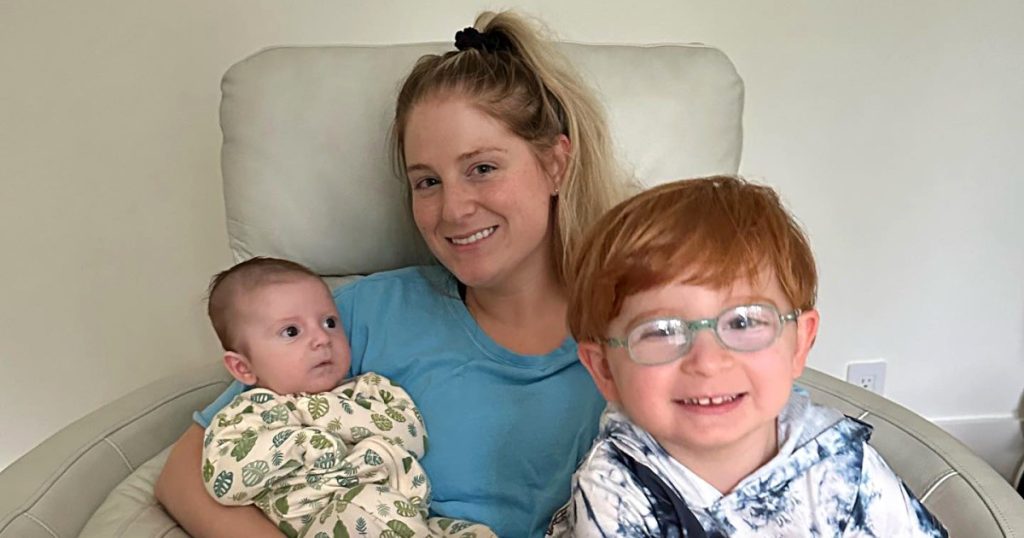Meghan Trainor’s journey into motherhood, while filled with joy, has also been marked by significant mental health challenges. Following the birth of her second son, Barry, in 2023, Trainor experienced a debilitating panic attack, a moment of intense fear and vulnerability that underscored the profound impact of postpartum mental health struggles. This incident served as a wake-up call, prompting Trainor to immediately seek help from her husband, family, and medical professionals. Her experience highlights the critical need for open communication and support systems for new mothers navigating the complex emotional landscape of postpartum life.
Trainor’s candidness about her mental health struggles extends beyond her recent experience with postpartum panic. She has openly discussed her prior diagnosis of post-traumatic stress disorder (PTSD) following the birth of her first son, Riley, in 2021. The traumatic experience of a C-section delivery left a lasting impact, manifesting in vivid nightmares that transported her back to the operating table. This experience solidified the importance of seeking professional help and addressing underlying mental health concerns, especially in the context of childbirth and the postpartum period. Trainor’s willingness to share her struggles with PTSD destigmatizes mental health conditions and encourages others to seek help when needed.
Trainor’s proactive approach to mental health is evident in her long-standing engagement with therapy and medication. Even before becoming pregnant, she was already taking antidepressants, a testament to her commitment to managing her mental well-being. This prior experience proved invaluable during her pregnancies and postpartum journeys, as she was already familiar with the complexities of her mental health and the strategies that worked best for her. Her proactive approach emphasizes the importance of prioritizing mental health as a crucial aspect of overall well-being, especially during significant life transitions like pregnancy and parenthood.
Despite her prior experience and the support of medical professionals, Trainor still faced internal struggles and self-doubt during her second pregnancy. She grappled with anxieties about the potential impact of her antidepressants on her baby, fueled by uninformed comments from medical staff. However, with the reassurance of her doctors and psychiatrist, she remained committed to her medication regimen, recognizing its importance in maintaining her mental health. This experience highlights the pervasive stigma surrounding mental health medication, particularly during pregnancy, and underscores the need for accurate information and supportive medical guidance.
Trainor’s commitment to open and honest communication with her husband, Daryl Sabara, has been instrumental in navigating the challenges of parenthood. After experiencing resentment during her first postpartum recovery, Trainor expressed her need for a more equitable division of labor with her husband following Barry’s birth. Sabara stepped up, taking on the nighttime feedings and allowing Trainor crucial time for recovery and rest. This exemplifies the importance of open communication within a partnership and the need for mutual understanding and support in navigating the demands of raising children.
Trainor’s story serves as a powerful reminder that mental health challenges are common and treatable, especially during and after pregnancy. Her willingness to share her experiences, both the vulnerable and the triumphant, not only destigmatizes mental health conditions but also empowers others to seek help and support when needed. By advocating for open communication, seeking professional guidance, and prioritizing her well-being, Trainor exemplifies the importance of self-care and the power of seeking help. Her message resonates with countless individuals facing similar challenges, providing hope, encouragement, and a sense of community in navigating the complexities of mental health.










